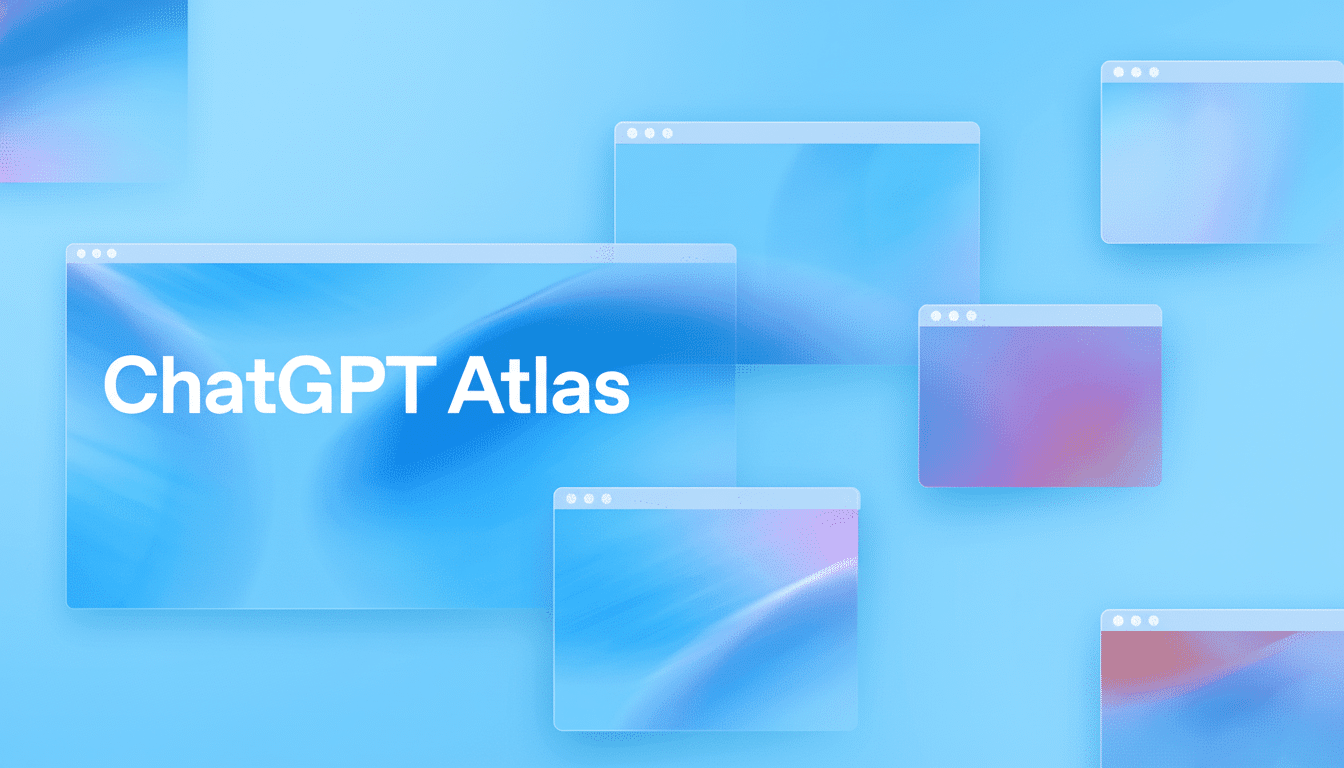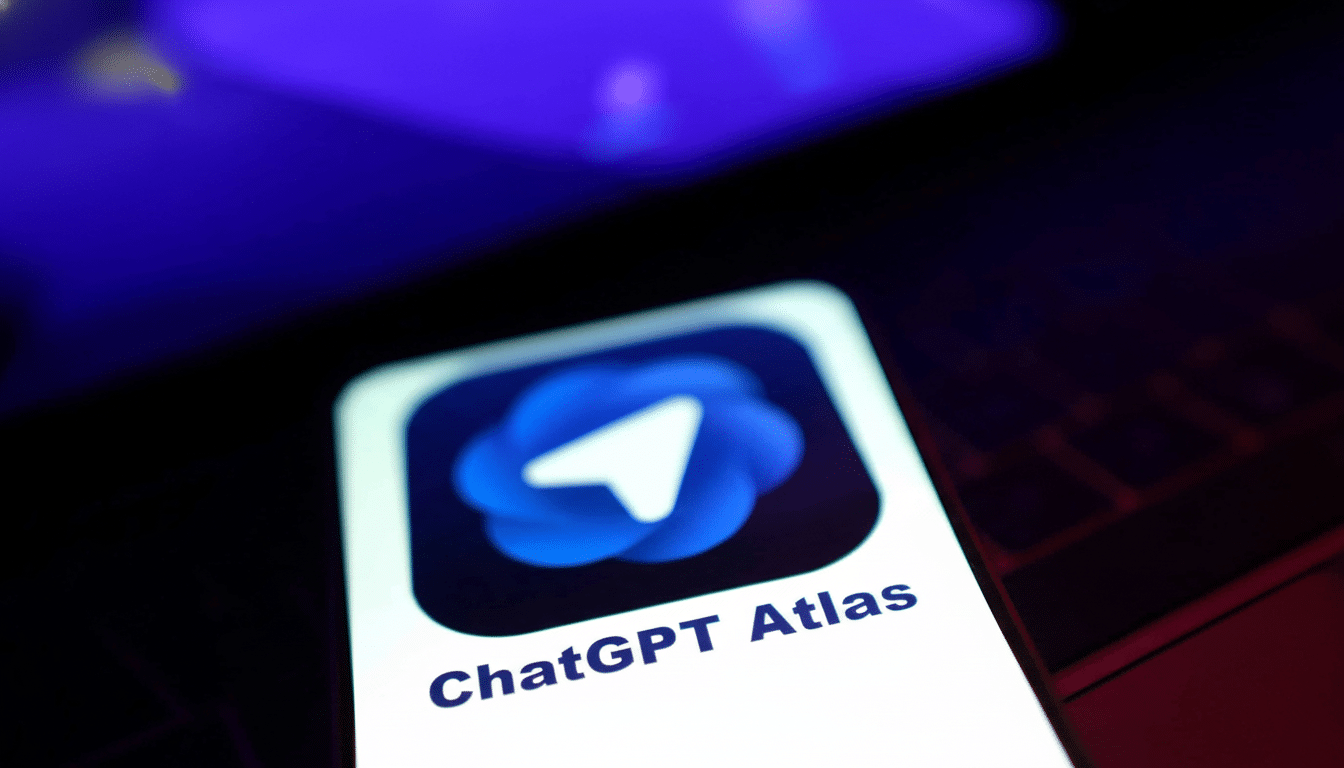OpenAI goes beyond chatbots as it rolls out ChatGPT Atlas, a new conversational AI browser that helps answer your questions and assists you while browsing the web. The product builds on the firm’s signature model to make web navigation conversational, and automate commonplace tasks that otherwise require hefty command of tabs, copy-paste gymnastics, and plug-ins.
A Browser That Puts Conversation and Context First
Atlas locates the ChatGPT interface right in the browser, allowing users to ask questions, fine-tune prompts, and question sources as they read. Rather than bouncing back and forth between a chatbot and the page you are reading, the assistant can reside alongside content, know what is on screen, and pull in supporting details without you taking special action.

Atlas’ engineering lead at OpenAI, Ben Goodger, encapsulated the goal in a livestream as a browser where search results are gates to back-and-forth. “It’s not about ‘here’s the link that answers your question,’ but this is really just a starting point and here are some paths you can actually take,” said Goodger. Atlas is also outfitted with a sidecar panel that instantly picks up context from the current page, which cuts down on time spent dragging links or pasting text into ChatGPT, product lead Adam Fry said. It’s a little UX detail that takes out friction some heavy users encounter every hour of the day.
Atlas also adds an optional “browser history” signal in service of personalization. With your permission, ChatGPT can learn from the sites you visit or actions that you take and then provide more targeted responses in the future. The currency of useful assistants is personal context; however, it comes at a cost that Atlas will almost certainly have to walk the line.
Agent Mode: Introduction of Task Automation
In addition to conversational search, Atlas has an agent mode that can perform scoped commands in the browser. Make it collect citations from reputable sources, extract and export tables from documentation, compare product specs in retailer pages, or fill tedious web forms, and the agent will perform the sequence on your behalf while revealing how it does each step.
Agent mode is gated for paid tiers at launch, across Plus, Pro, and Business accounts. And that echoes the company’s model-access approach and positions Atlas as both a consumer tool for individuals as well as a gateway to enterprise workflows that require auditability and admin controls.
Rollout and Platform Strategy Across Devices and OSes
Atlas is launching first on macOS, but Windows, iOS, and Android are coming soon, according to OpenAI, which says there’s no “freemium” tier to the app either. That approach broadens top-of-funnel reach, yet distribution is where many alternative browsers flounder. And default status matters; research from the U.K.’s Competition and Markets Authority, and that of the European Commission, have repeatedly documented just how defaults influence user behavior in search as well as browsing.
The wider race is already well underway. Perplexity’s Comet and The Browser Company’s Dia are reimagining the tab as a workspace with built-in AI while more established players like Microsoft Edge and Opera have integrated copilots or AI assistants directly into the chrome. Brave’s Leo represents a privacy-first take on that same trend. Atlas will need to compete based on speed, accuracy, and trust, as well as features.

Privacy and Policy Questions Around Data and Consent
Permissions that would allow an assistant to peek over your shoulder are powerful — and touchy. OpenAI says users can opt in to history-driven personalization, but the exact manner in which data is stored, processed, and how you remain safe still depends on how Atlas pans out as something that businesses will adopt. The Electronic Frontier Foundation has cautioned that always-on assistants threaten to spread the surface area for surveillance, calling for data minimization and clear consent.
Regulatory context is shifting fast. The EU’s Digital Markets Act is driving platforms toward more user choice on defaults, and data protection authorities in Europe and the U.K. have further fine-tuned guidance on behavioral profiling. In the United States, the Federal Trade Commission has identified automated scraping and black-box model training as areas of concern. Atlas will require more open settings, easy opt-out, and clear boundaries between browsing data and model refinement.
Can Atlas Dent Chrome’s Dominance in Web Browsing?
The hill is a tough one to climb. Chrome holds the biggest share of global browsing, and independent estimates place its user base in the billions. For years, StatCounter’s numbers have had Chrome far in front of competitors on desktop and mobile. And despite all the A.I. buzz, most people are still creatures of old search and link-clicking habits they formed over the years.
But user behavior is not written in stone. Pew Research Center recently found growing awareness and use of generative AI among U.S. adults, and Gartner believes agentic workflows will progress out of the proof-of-concept phase to knowledge workers at scale. And if Atlas can even modestly shave research cycles, trim tab overload, and provide reliable citations, it might be able to win share among heavy web users, students, analysts, and developers.
Early Signals to Watch as Atlas Reaches More Users
Three metrics will tell the tale.
- First up, retention: Do users stick with Atlas as their default after the novelty has worn off?
- Second, task fulfillment: Do agent-led actions really save time in the number of form fills, extractions, and summarizations within a session?
- Third, trust: Do organizations have to switch on history personalization and get administrator visibility, policy control, and data residency options for compliance?
If OpenAI can combine ChatGPT fluency with a fast, standards-compliant rendering engine and privacy posture that holds up to scrutiny, Atlas could pressure incumbents to embrace the browser as more of an assistant than simply a dumb window. Otherwise, it risks joining the ranks of AI overlays that never amounted to much more than a thin veneer of intelligence over the same old mess of tabs.

